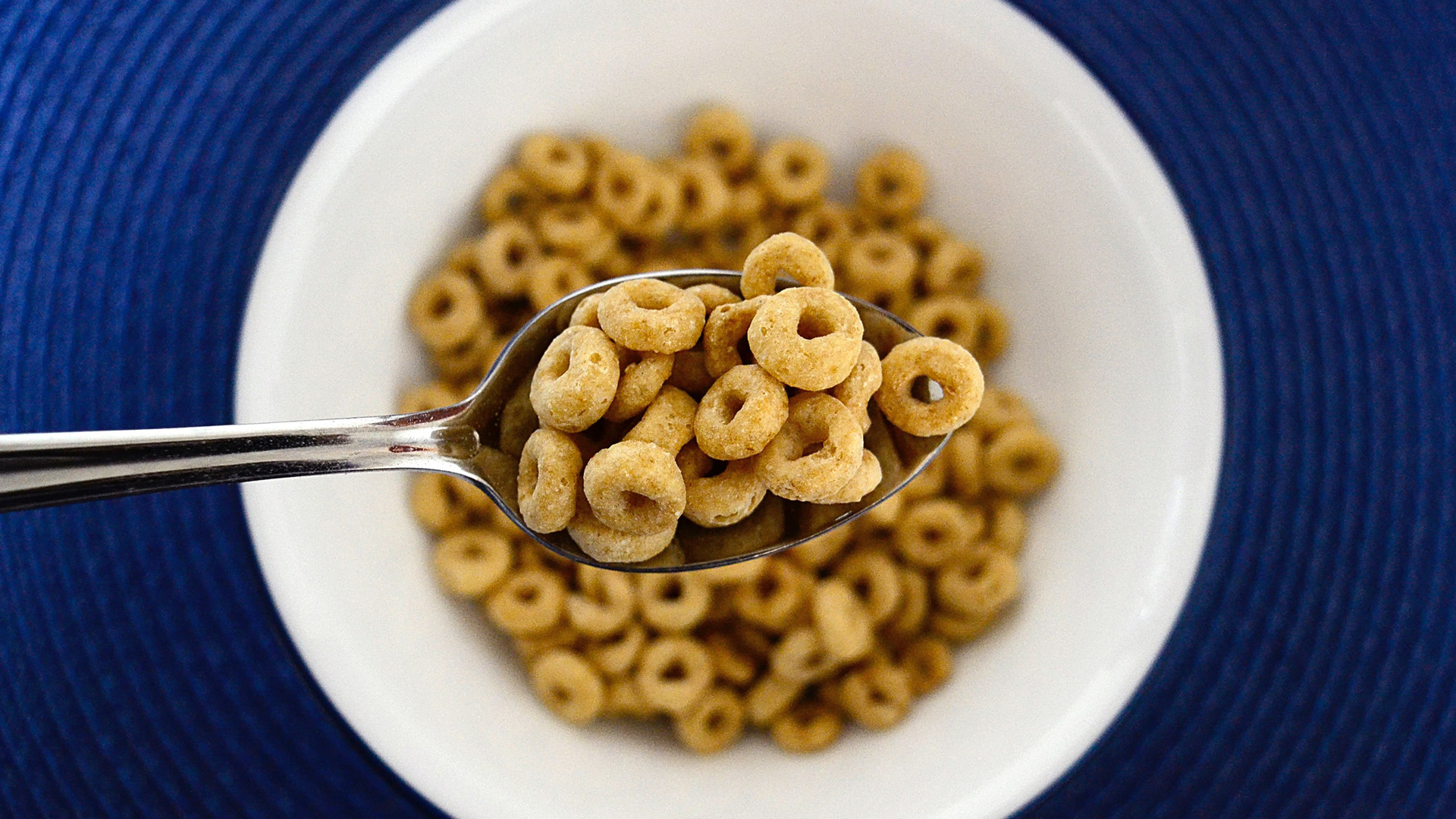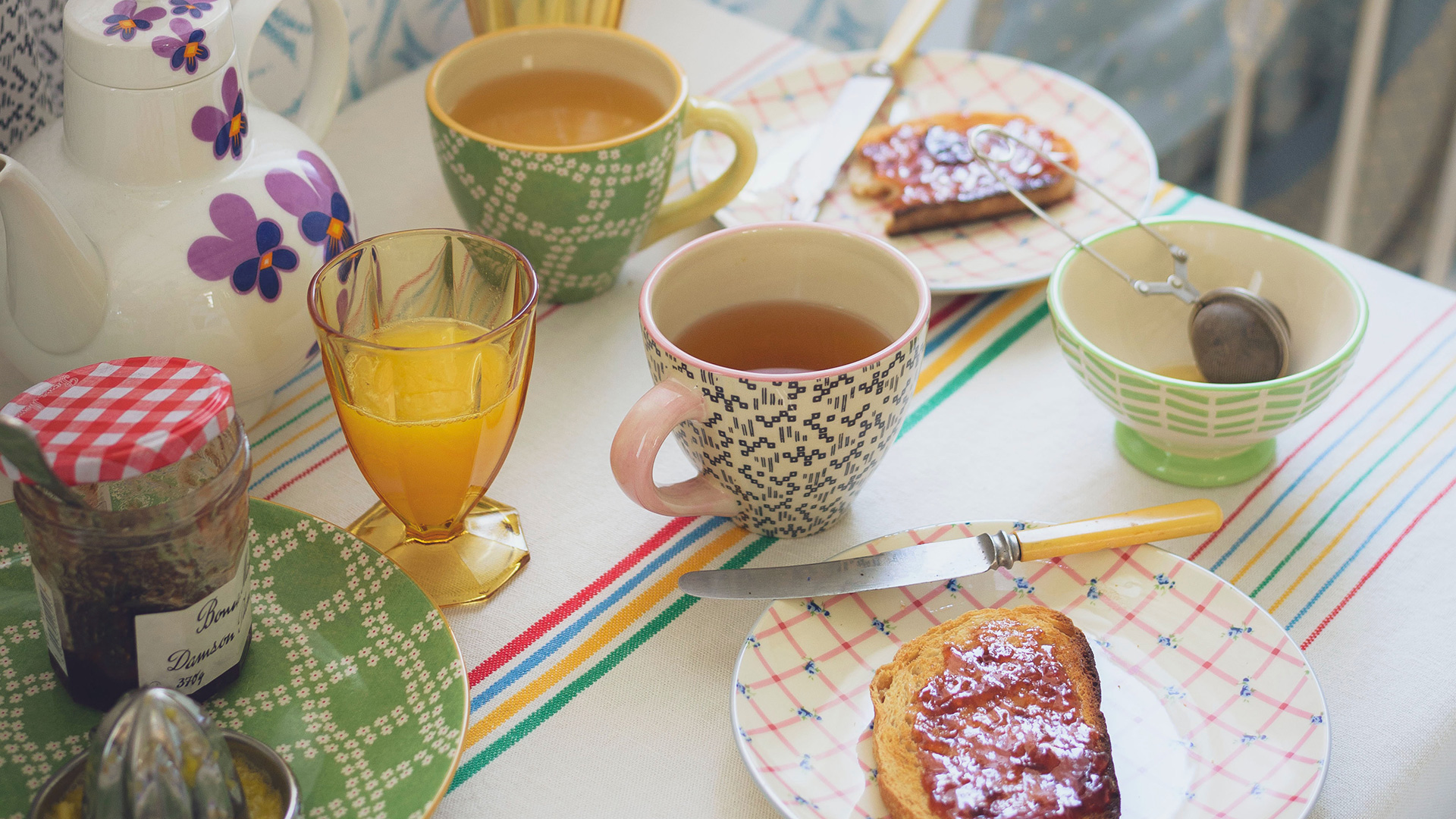Your breakfast is making you even more stressed – here's what you should be eating instead
A top nutritionist shares her tips for breakfasts that help you start the day off feeling calm and in control


If there's one thing many of us are not short on at the moment, it's stress. While there's not a huge amount we can do about the things causing that stress (we won't go into them here, everyone's aware there's a pandemic going on), there are factors we can control that help us feel more calm and less anxious.
A bad morning routine can set you up for a worse day, so it's worth spending a bit of time trying to make it as calming as possible. Invest in one of the best wake-up lights for a soothing, more natural feeling alternative to an alarm. If you're struggling to sleep, many swear by weighted blankets as a solution.
Another good thing to look at is what you're eating for breakfast. Food can have a surprisingly big impact on anxiety levels, and there are some simple things we can do to help us feel calmer. Working with FOGA, award-winning Nutritionist and Naturopath Zoe Palmer-Wright has dug into why the foods we'd typically have for breakfast aren't the best choice, and offered some top tips for alternatives.
What not to eat for breakfast
Key to managing anxiety is keeping your blood sugar levels stable, says Zoe. "Unstable blood sugar levels are a huge driver of anxiety, and sudden drops in blood sugar can even trigger panic attacks."
When you eat a high-sugar breakfast composed mainly of refined carbohydrates – so that includes many commercial cereals, croissants, white toast and jam – sugar is released into your system quickly, causing blood sugar levels to spike and then quickly fall again. Any time there's a sudden drop in blood sugar like this, the body responds by releasing stress hormones adrenaline and cortisol.
"This experience of your blood sugar quickly dropping too low and stress hormones being released makes you feel shaky, tired, sweaty, jittery, anxious, nervous, irritable and 'hangry'," explains Zoe. If you're drinking coffee too, that'll only make things worse: caffeine it contains triggers the release of even more stress hormones.

"Ultimately, when you continually eat in a way that causes these dramatic spikes and falls in blood sugar levels, you put yourself on a blood sugar rollercoaster, cause stress to your body and seriously destabilise your mood."
Get all the latest news, reviews, deals and buying guides on gorgeous tech, home and active products from the T3 experts
What you should be eating instead
So what to eat instead? Essentially, to keep your blood sugar levels stable, you want a breakfast that includes a mixture of fibre, healthy fat and protein. There are also some specific foods and nutrients that can help reduce anxiety and help you feel more in control:
B-complex vitamins
What do they do? Help stabilise mood and calm the nervous system. The brain also needs then to make certain mood-regulating neurotransmitters.
What should I eat? Meat, seafood, eggs, legumes, tempeh, nuts, seeds, leafy greens and nutritional yeast.
Fermented foods
What do they do? Being naturally rich in probiotics, these help promote a healthy gut, which is where many key mood-regulating neurotransmitters are made.
What should I eat? Kefir, sauerkraut, miso soup, raw apple cider vinegar, kimchi and tempeh. Perhaps not all for breakfast.
Magnesium
What does it do? It's 'nature’s tranquiliser'.
What should I eat? Green leafy vegetables, nuts and seeds, dark chocolate with a high percentage of raw cacao.
Zoe Palmer-Wright is working with FOGA, a wellness brand that makes breakfast shakes designed to help you start your day off in a calm way.

Ruth was T3's Outdoors and Wellness Editor from 2020 to 2022, covering hiking, camping and adventure sports kit, as well as mattresses, sleep accessories, yoga and general wellness. She's now a Homes Editor at sister site TechRadar, where she deals in all things air (vacuum cleaners, robovacs, fans and air purifiers), and hair (hair dryers, straighteners and stylers).